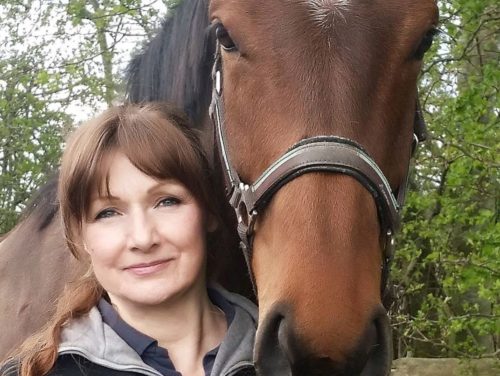
Debbie Busby BSc(Hons) MSc MBPsS CHBC
Debbie works with referring vets to resolve complex behaviour problems in horses and dogs and acts as expert witness in equine legal cases. She is registered with the UK’s Animal Behaviour and Training Council as a Clinical Animal Behaviourist, a full member of the Association of Pet Behaviour Councillors and a Certified Horse Behavior Consultant with the International Association of Animal Behavior Consultants. Debbie also supervises university students and mentors new behaviourists coming through professional routes, and practices as a psychotherapist within a Transactional Analysis framework.
Debbie writes articles and books on all aspects of behaviour and consulting, and presents talks and workshops internationally, both as an equine behaviour specialist and as a supporting expert in the Human Behaviour Change for Animals team, collaborating on psychology-themed projects. She wrote the chapter on Equestrianism in the book Equine Behaviour in Mind, edited by international welfare consultant and behaviourist Suzanne Rogers, and has co-authored a book on equine evolution, behaviour and horse-human relationships, The Horse, A Natural History, published by Princeton University Press. Debbie answers ‘Ask the Experts’ questions in Horse and Rider and Your Horse magazines, two of the UK’s best-selling equestrian monthly magazines.
Debbie holds a first class BSc (Hons) in Psychology and an MSc with distinction in Applied Animal Behaviour and Welfare and is a graduate member of the British Psychological Society, and member of the British Veterinary Behaviour Association, Association for the Study of Animal Behaviour, Equine Behaviour and Training Association, International Society for Equitation Science, British Association for Counselling and Psychotherapy, UK Centre for Animal law (A-Law) and UK Register of Expert Witnesses.
Debbie uses her experience as a psychotherapist to help her animal behaviour clients understand and implement the changes that she recommends through her behaviour consultations, and she has adapted the Transactional Analysis model of communication for use with behaviour clients. Through her interest in the human element of behaviour consulting she works closely with Human Behaviour Change for Animals, developing educational resources and new reflexive working models to facilitate change and personal development.

